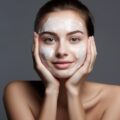Retinol has long been hailed as a miracle worker in the world of skincare. It’s known for its ability to reduce the appearance of fine lines, combat acne, and promote a clear, youthful complexion. However, retinol isn’t for everyone. Due to its potency, it can cause irritation, redness, and peeling, particularly in those with sensitive skin. If you’re looking to ditch retinol but still want to maintain glowing, healthy skin, fear not. There are alternatives that can be just as effective without the harsh side effects. In this article, we’ll explore five amazing skincare products that I’ve personally embraced after giving up retinol.
1. Bakuchiol: The Plant-based Retinol Alternative
Bakuchiol, derived from the babchi plant, is often touted as the natural counterpart to retinol. Studies have shown that it can offer similar benefits, such as improving skin texture and reducing the appearance of fine lines, without the irritation. Bakuchiol is ideal for those seeking a gentler approach to anti-aging skincare.
2. Niacinamide: The Versatile Vitamin
Niacinamide, also known as vitamin B3, is a powerhouse ingredient that works well for nearly all skin types. It helps to reduce inflammation, minimize the appearance of pores, and regulate oil production. Moreover, it’s known for its ability to strengthen the skin’s barrier function, which is crucial for maintaining hydrated, resilient skin.
3. Hyaluronic Acid: The Hydration Hero
Hyaluronic acid is a humectant that draws moisture into the skin, providing intense hydration and plumping up fine lines. Unlike retinol, it does not exfoliate but instead helps to create a smoother, dewy complexion. It’s perfect for those who find retinol too drying.
4. Vitamin C: The Brightening Antioxidant
Vitamin C is a powerful antioxidant that can brighten the skin, reduce the appearance of dark spots, and protect against environmental stressors like UV rays and pollution. When used consistently, it can also stimulate collagen production, leading to firmer, more radiant skin.
5. Peptides: The Building Blocks of Youthful Skin
Peptides are short chains of amino acids that signal the skin to produce more collagen, which can help to reduce the signs of aging. They are particularly effective in eye creams and serums, targeting fine lines and improving skin elasticity without the irritation associated with retinol.
FAQ: Retinol Alternatives in Skincare
Can bakuchiol really replace retinol?
Yes, bakuchiol is a promising alternative to retinol with similar anti-aging benefits but without the harsh side effects.
Is niacinamide suitable for all skin types?
Niacinamide is generally well-tolerated by all skin types, including sensitive and acne-prone skin.
How often should I use hyaluronic acid in my routine?
Hyaluronic acid can be used daily, and it’s often recommended to apply it twice a day for optimal hydration.
When is the best time to apply vitamin C?
Vitamin C is best applied in the morning to take advantage of its antioxidant properties throughout the day.
Do peptides have any side effects?
Peptides are generally considered safe and do not commonly cause side effects. However, as with any ingredient, it’s possible to have an allergic reaction, so it’s important to patch test new products.









